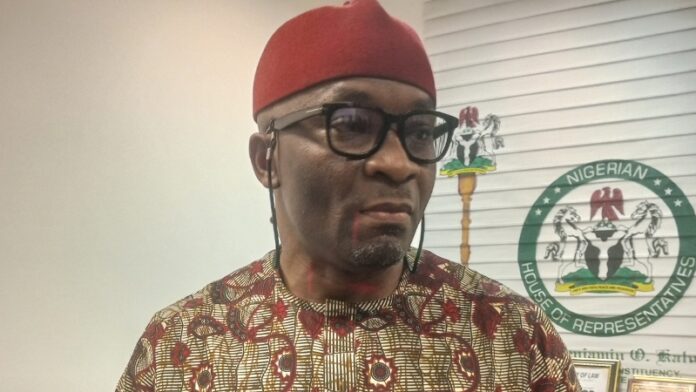The deputy speaker of the house of representatives, Mr Benjamin Kalu said the demand for the creation of additional 31 states is not realisable because none of the requests presented met the basic constitutional requirement.
Kalu disclosed this on Friday at a two-day retreat held in Ikot Ekpene, Akwa Ibom State.
“Although we have received 31 requests for state creation, none of these requests met the constitutional requirements for amendment.
“Therefore, we have since extended the submission date to the 5th of March, 2025. But this retreat could in our resolution extend it further if we find out that there are still challenges that the people we represent in their efforts to make their voices heard.
“So at the end of this retreat, it will be one of the things we will look into, whether or not we will extend the time. But let it be a notice that none of the applications followed the conditions laid out by Section 8 of the Constitution of the Federal Republic of Nigeria,” Kalu said.
Kalu, who is also the chairman of the house of representatives, committee on the review of the 1999 Constitution, also disclosed that the committee was reviewing 151 constitutional amendment bills.
He noted that duplication had been a key challenge in the process.
To streamline efforts and eliminate redundancy, he said the committee categorised the bills into thematic areas.
The thematic areas are federal structure and power devolution, local government autonomy, public revenue, fiscal federation, and revenue allocation, Nigerian police and security architecture, comprehensive judicial reforms, electoral reforms, gender issues and human rights as well as state creation.
He said categorisation would help lawmakers prioritize amendments based on national interest and legislative relevance.
Recognising the intersection between constitutional amendments and electoral laws, he said the committee invited the leadership of both the House and Senate Committees on Electoral Matters to the retreat.
Kalu emphasised that any proposed changes to the Electoral Act requiring constitutional alterations must pass through the committee.
“A proactive, cooperative approach will ensure seamless legislative processes and comprehensive legal reforms,” he said.
As part of the next phase of the constitutional review, he said the committee scheduled zonal and national public hearings across the six geopolitical zones.
The hearings, he said, will provide an avenue for Nigerians to contribute to the amendment process.
He said sessions had been planned for the North Central (Nasarawa and Niger states), North East (Borno and Gombe states), North West (Kaduna and Sokoto states), South East (Enugu and Imo States), South-South (Bayelsa and Cross River states), and the South West (Lagos and Ondo states).
Kalu urged lawmakers to work diligently and objectively on these bills to ensure that the final amendments reflect the will of the Nigerian people.
“As legislators, we must ensure the voices of Nigerians are reflected in our constitutional reforms,” he added.
The event was organised by the Policy and Legal Advocacy Centre (PLAC) and supported by the UK Foreign, Commonwealth, and Development Office (FCDO).
The executive director of PLAC, Mr Clement Nwankwo, said the centre was delighted to work with and support the Committee.
“We are quite confident that this committee intends to deliver on the mandate that it has set for itself and it will be a key and great win to see the amendments to the constitution delivered within the timeframe that this committee has set.
“We’re looking forward to great deliberations. My colleagues who are co-consultants with me on this project have been meeting over several the last couple of months to deliberate and come up with suggestions for this committee to look at,” he added.



























































